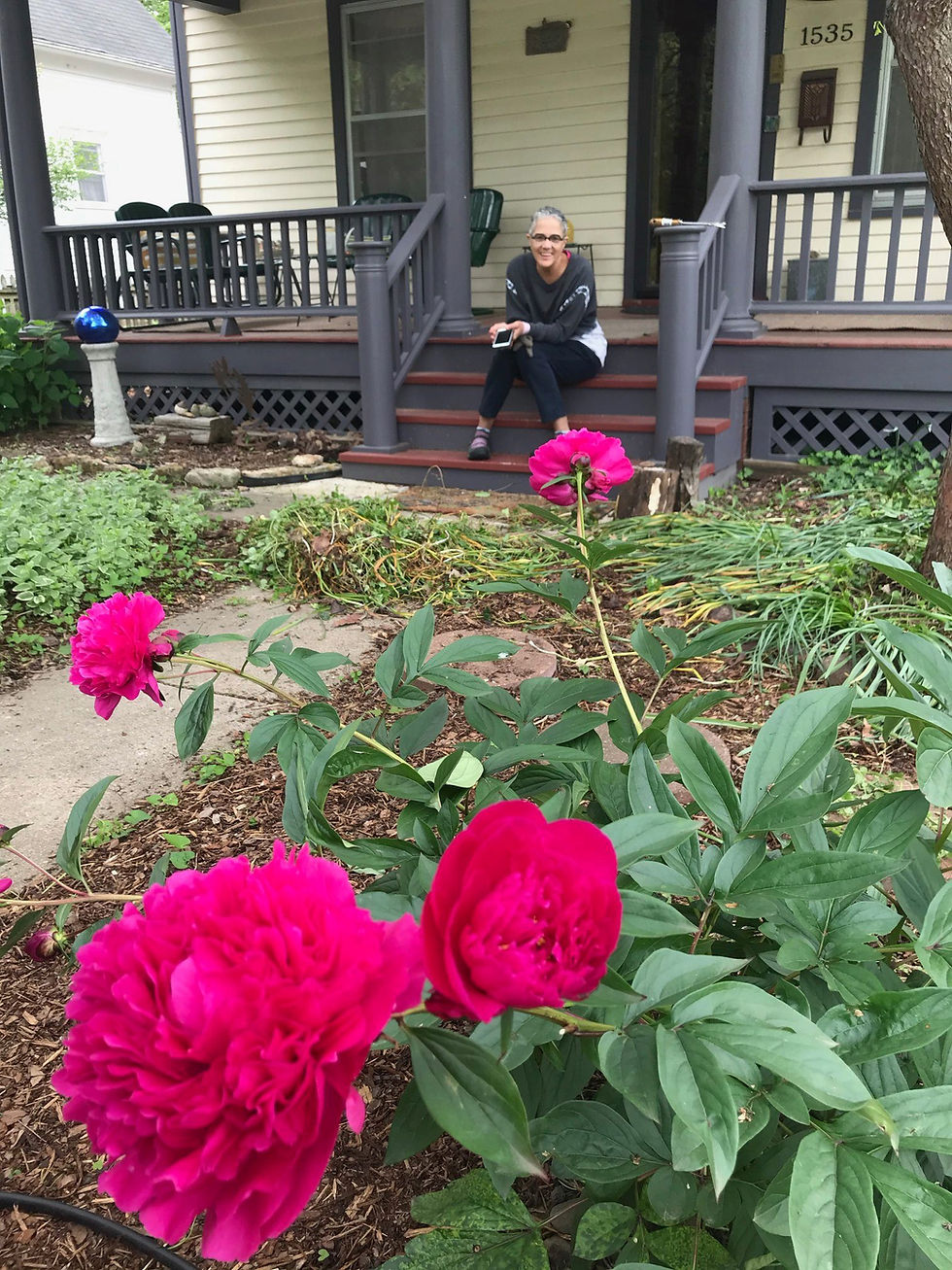A New Understanding of Memorial Day: Everyday Magic, Day 1081
- Caryn Mirriam-Goldberg
- May 27, 2023
- 2 min read
Updated: Sep 25, 2023

This year on Memorial Day, my 33-year-old son asked all of our family local to meet at the cemetery to decorate the graves, speak to our dead beloveds, and tell stories about them. As someone who just took a passing interest to Memorial Day in the past, this really touched me and made me start researching what I already vaguely knew: the origins of Memorial Day are quite different from how many Americans celebrate this holiday. Many of us in this country tend to take the holiday as a Thank-God-Three-Day-Weekend of relief, the great time of potato salad and coleslaw, or a day to leave flowers and weed around tombstones.
But Memorial Day is a nationally-sanctioned holiday to remember soldiers who were killed in or around war or related actions. The old saying, “All gave some and some gave all,” applies here along with a deeper understanding of what putting your life on the line for your country can mean, a meaning left in the dust by how many of us generally do this holiday.
According to PBS’s Memorial Day (and lots of other sites out there), the first widespread observation of Memorial Day, originally called Decoration Day, was May 30, 1868 to commemorate Civil War soldiers who died in battle. But there’s also precedence of this holiday in the South in some surprising ways. On May 1, 1985, survivors of slavery in Charleston, SC held a parade of 10,000 people to honor 257 Union soldiers who died at a Confederate prison camp. If you go down the Google wormhole, you’ll find all kinds of other Memorial Day origin stories in New York, Mississippi, Michigan, Pennsylvania, Georgia, Virginia, etc.
What remains consistent in the origin stories is how this is a somber to heart-wrenching commemoration of the devastation war takes on human life and an opportunity to recognize those who made the ultimate sacrifice. Memorial Day, wherever it happened and whatever it was called, in contrast to Veteran’s Day, was specifically to honor fallen soldiers.
I also found numerous sites in which veterans and active soldiers rightfully lament how so many of us, myself included, simply saw Memorial Day as a time to barbecue some burgers and go decorate the graves of loved ones, most of whom didn’t die during their military service. On one hand, rituals shift and morph. The impetus behind them can shift and widen. Our culture is infamous for turning solemn observations, like this holiday, into big sales on lawn furniture and mattresses.
So this Memorial Day, while I’m not shopping for new bedding, I am carrying in me a paradox I haven’t yet reconciled (maybe it can’t be reconciled): we need to set aside this time to meditate on and honor those who died to protect our freedoms. Meanwhile, I’ll be leaving flowers on the graves of other beloveds who did not die while serving our country.
The common thread is remembering the dead, whether they sacrificed their lives for the greater good or died other ways. Perhaps it all leads (while acknowledging how this day has been usurped in all kinds of ways) to pausing in our lives enough to really take in what people have given with their lives, and from it, learn how to give and love better.







Comments